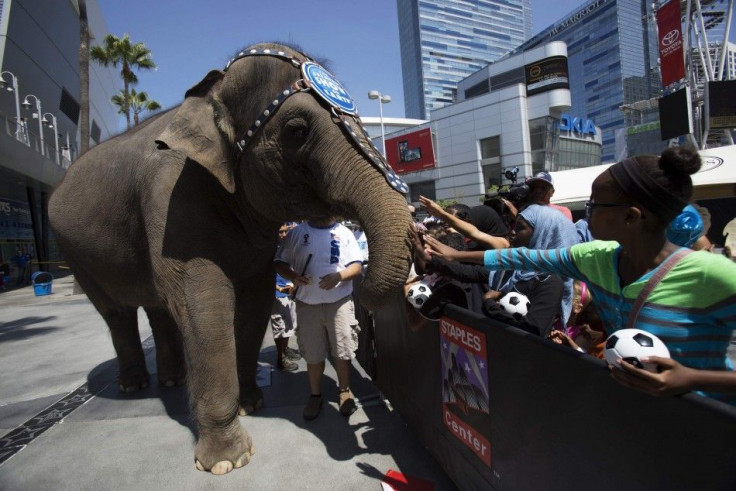Elephants More Sensitive to Smell Than Dogs
Elephants Have the Largest Amount of Genes Devoted to Recognizing Odour

The largest living animal that walks the earth has also overtaken the dogs in the animal kingdom when it comes to olfactory capabilities. Elephants have been found to have 10,000 genes devoted to recognising odour, which is the largest ever to be discovered in the animal kingdom. That amount of genes that they posses with regard to smell is twice as that of dogs and five times more than that of humans.
The elephant's long trunk has olfactory receptor genes more than any creature on earth, a study found. They are capable of distinguishing between wide ranges of odour. But scientists acknowledge that though they possess the largest amount of genes this might not directly correlate to them being the best sniffers.
The lead study author Yoshihito Niimura of the University of Tokyo's department of applied biological chemistry said, "We don't really know how the number of olfactory receptor genes relates to olfactory ability. For example, dogs are known for their keen sense of smell -- but we actually already knew that their number of genes was much smaller than mice, who we don't see with that same ability."
Dogs can smell humans from a low concentration of odour molecules. They are undeniably sensitive to smell, he said. But not all kinds of scent. Elephants are capable of differentiating between similar odour molecules; an ability humans and primates were incapable of. They can identify another elephant by a minute odour difference in their urine.
"Imagine having a nose on the palm of your hand," Yoshihito Niimura said. "Every time you touch something, you smell it!" In addition to using their trunks as limbs he informed that they rely heavily on their trunks to detect smell and interact with humans
The long trunk plays a vital role in helping them remember and distinguish between places and people. Elephants are very intelligent. "A good nose isn't much use unless it goes with a good brain able to turn odours into knowledge," he stated.
National Geographic also found that the elephant's increased olfactory ability compensated its weak vision.




















